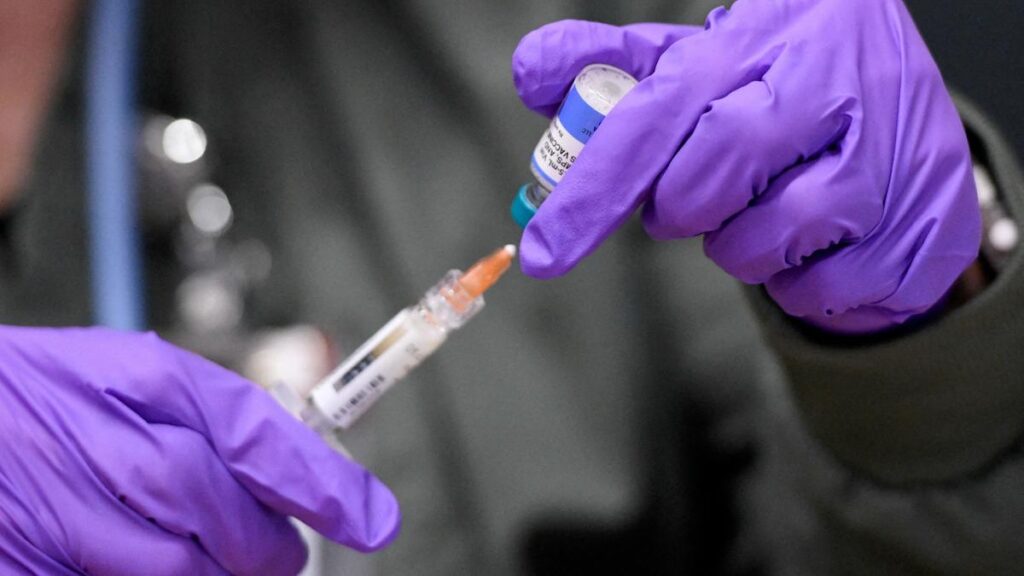When was the last time you thought about getting vaccinated as an adult? For most people, the answer is either “never” or “not after the COVID-19 shot and boosters”. While childhood immunisation is a well-established practice in India, adult vaccination remains a largely ignored and misunderstood area among both the general public and healthcare providers. But what vaccines to adults need? Where do they go to get them? Are there dedicated centres or clear guidelines for adult immunisation in India?
The fact is, adult vaccination exists in a fragmented, almost invisible form in the country. Unlike the systematic campaigns for children, there are no clear pathways for adults. Hospitals may offer vaccines like flu shots or the pneumococcal vaccine, but only if you ask for them. Many doctors, unless specialising in infectious diseases, rarely bring up the topic.

Global and national prevention guidelines
According The World Health Organisation (WHO), we now have vaccines to prevent more than 20 life-threatening diseases and immunisation currently prevents 3.5 million to 5 million deaths every year from diseases like diphtheria, tetanus, pertussis, influenza and measles.
However, the WHO’s January 2025 immunisation guidelines point out that there is an urgent need for adult vaccination to prevent potential infectious diseases and curb antimicrobial resistance.
The report also highlights key vaccines recommended for adults that include hepatitis B (for high-risk groups), polio (for travellers to endemic areas), tetanus-diphtheria vaccine (booster every 10 years), HPV (for women up to 45 years), pneumococcal vaccine (for older adults and those with chronic illnesses), typhoid (with options for conjugate, polysaccharide, and oral vaccines), seasonal influenza (annual shots for vulnerable groups), cholera, meningococcal, and hepatitis A vaccines.
Likewise, The Indian Consensus guideline on adult immunisation released by The Association of Physicians of India (AIP) across specialities emphasises that adult immunisation must be integrated into national health strategies, with better access, combination vaccines, and public awareness campaigns. Crucially, vaccines help combat antibiotic resistance — a massive public health challenge in India and around the world — by preventing infections that would otherwise require treatment with antibiotics.

Vaccine advocacy dilemma in medical community
There are vaccine programmes in place but due to several barriers, starting from within the medical community itself, priority to adult vaccinations has not been given as yet, says Sheela Chakravarthy, director, internal medicine, Fortis Hospital, Bengaluru.
“Doctors are themselves very poorly informed about adult vaccination, as adult immunisation doesn’t fall under any particular medical specialisation, making it easy to overlook,” says V. Ramasubramanian, infectious diseases specialist, Apollo Hospitals, Chennai.
Various medical communities like the Geriatric Society of India, the Research Society for the study of Diabetes in India, the Indian Society of Nephrology, and the Federation of Obstetric and Gynaecological Societies of India have issued adult vaccination guidelines at various time points like the AIP. But there are still fears and miscommunication when it comes to immunisation in adults within the medical community itself, points out Dr. Ramasubramanian.
“One reason for the hesitation from the medical community could be legal concerns. For instance, if you give a vaccine and an unavoidable side effects occur, the doctor may be sued. This is more likely in the case of vaccinating healthy adults,” he says. Another reason he says, is access: “Right now, vaccines are given only by paediatricians,” forcing adults to rely on super-speciality hospitals, which limits availability and affordability.
What adult immunisations can protect from
Shingles (Herpes Zoster) : Shingles vaccine (Shingrix)
Influenza : Influenza vaccine (Flu shot)
Tetanus, Diphtheria, and Pertussis — Tdap vaccine
Hepatitis A and B : Hepatitis A and B vaccine (Twinrix)
Human Papillomavirus (HPV) : HPV vaccine (Gardasil 9)
Pneumococcal infections : Pneumococcal vaccine (PPSV23 or PCV20)
COVID-19 : COVID-19 vaccine boosters (Pfizer, Moderna, Novavax, etc.)
Educating the public
Dr. Sheela points to public reluctance toward adult immunisation as an important factor: most people think it is not important, and this thinking needs to change, she says. She points to the example of typhoid vaccines, “Typhoid vaccines have been available for years, but the general public do not yet know that this is an important vaccine despite its three-year protection.”
Anantha Krishnan, internal medicine specialist and diabetologist at Prashanth Hospitals, Chennai, adds that all primary healthcare providers are authorised to provide vaccination services but there should be better access . While private vaccine companies have begun promoting adult vaccines, like the shingles vaccine through celebrity endorsements, the awareness given to the public by private and public healthcare sectors around essential vaccines like flu and pneumonia shots remains low, he says. “The pneumonia vaccine was previously for those above 65 years, now even those over 50 should get it, but that is not happening in our country,” he says.
Patients are more likely to listen to their doctors more than they the government, he stresses, as they have an ongoing relationship with them, and so, the onus should be on the medical profession to talk about these vaccines with their adult patients.

Educating the public remains key for vaccine promotion according to R. Narasimhan, senior respiratory physician, Apollo Hospitals, Chennai. Dr. Narasimhan says that conducting educational sessions at medical conferences can help doctors stay updated on the importance of prioritising the latest available vaccines. Additionally, he also stresses that government hospitals should recognise the importance of adult vaccines by addressing cost-related barriers. “This way, successful strategies from other countries can be adapted in India among the public and doctors”, he says.
Mass education interventions along with providing clear legal and State-initiated protection to healthcare workers could go a long way, adds Dr. Ramasubramanian.
Published – March 12, 2025 01:39 pm IST

